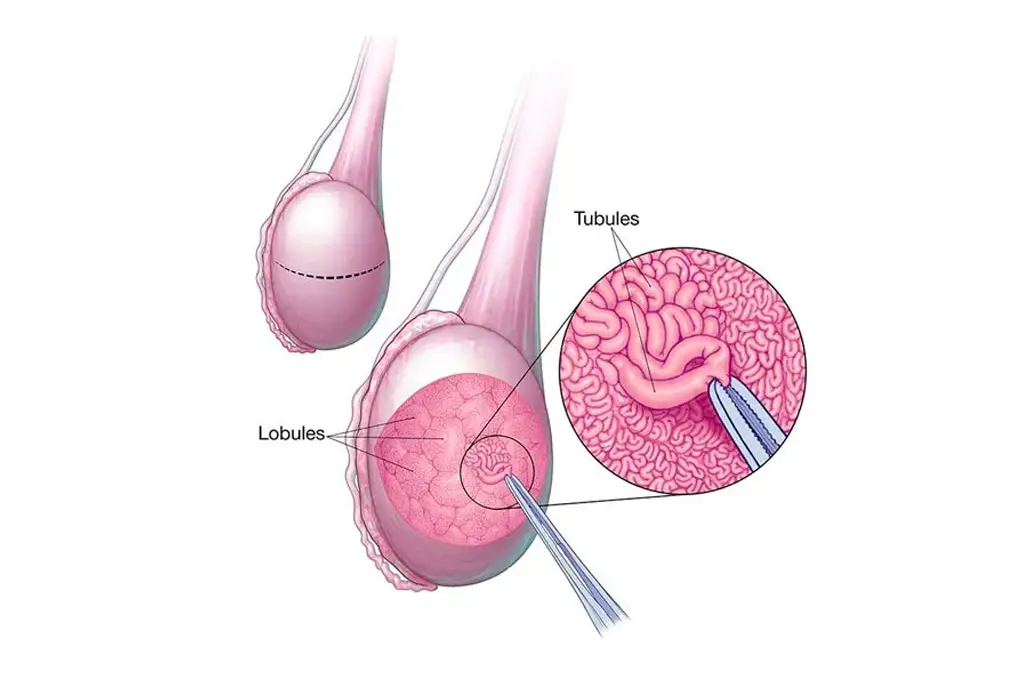What Is MicroTESE?
MicroTESE is a procedure performed on men in an operating room under general anaesthesia. During the operation, a reproductive endocrinologist uses a microscope to detect and remove sperm from testicular tissue. While the process can be effective in extracting sperm for many men, it does not offer guaranteed results. After the procedure, the patient can start their normal activities after a week, but you should avoid strenuous exercises or only do them for a short time.
How Is MicroTESE Performed?
Now that you learned about “what is microTESE?”, let’s understand the procedure. Men with Non-Obstructive Azoospermia (NOA) typically don’t have detectable sperm in a semen analysis. However, these men may still have isolated areas within their testicles that are capable of producing sperm. When performing microTESE surgery, a surgeon spends hours looking for sperm with an operating microscope. A reproductive endocrinology lab technologist may spend up to 14 hours searching beneath a bench-top microscope.
The sperm recovered is used for in vitro fertilisation (IVF) and intracytoplasmic sperm injection (ICSI).
What Are the Benefits of microTESE?
| Benefit | Description |
| Sperm Retrieval for Men with NOA | Effective in retrieving sperm for men with Non-Obstructive Azoospermia, where sperm are absent in semen analysis but may still be produced in the testicles. |
| Improved Chances of ICSI Success | Retrieved sperm can be used in Intracytoplasmic Sperm Injection (ICSI), a fertility technique that injects a single sperm directly into an egg for fertilisation. |
| High-Quality Sperm Retrieval | MicroTESE may sometimes retrieve sperm of higher quality compared to other retrieval methods. |
| Outpatient Procedure (Mostly) | Typically performed as an outpatient surgery with a shorter recovery time compared to traditional surgeries. |
What Are the Tips for Increasing the Success Rate of MicroTESE?
After understanding “what are the benefits of microTESE?,” let’s now look at how the MicroTESE success rate can be improved. Here are some useful tips to improve your chances of a successful MicroTESE surgery:
Maintain a Healthful Lifestyle
This includes ensuring the following:
- You should eat a balanced diet, stay healthy, and maintain your weight. Do a daily workout or easy exercise that doesn’t harm you.
- Do not smoke or consume excessive alcohol. It may harm you and can also lead to failure of surgery.
- Take medicines provided by the doctor on time. If you feel something is wrong and want to take another medicine, confirm it with a doctor before taking it.
- You should avoid activities or clothing that induce hyperthermia, which can impair sperm production.
- Keep an eye on your vitamin levels since deficits can have an impact on sperm health.
If you have any medical illnesses, like diabetes or any other, make sure to tell your doctor and keep it balanced because they might decrease sperm production.
Be Emotionally Strong
You should not feel stressed about the procedure. It may have an impact on surgery. If you have a mental breakdown or any queries, don’t be afraid to seek assistance from your spouse, family members, or mental health specialists. They will help you manage your emotions during this time. Relaxation exercises, like meditation or deep breathing, can help you control your stress and improve your emotional well-being.
Choose the Right Doctor
Choose the right and experienced doctor before going for surgery. You can ask the doctor about their experiences and the number of surgeries they have done before. Clear all doubts before going for surgery so you can be mentally prepared for it. The doctor will ensure you have successful surgery and will try to make you comfortable and confident for surgery.
Conclusion
MicroTESE surgery increases the likelihood of sperm retrieval for use in assisted reproductive technologies. The microTESE success rate is great and also improves sperm quality. However, you should not set your expectations high because it also has many potential limitations. In case you have doubts, a qualified specialist will clear them up and discuss your situation to give you the best solutions for your condition.


